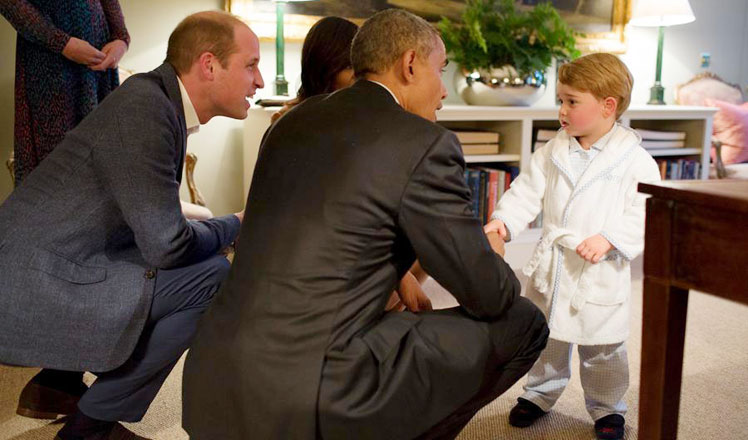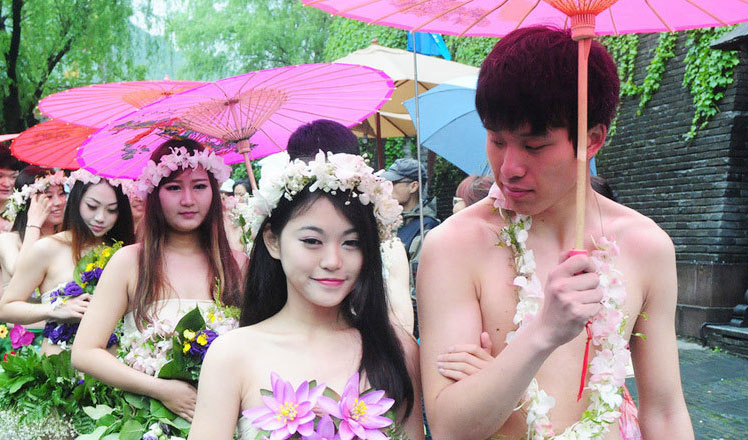Draft law on overseas NGOs eases restriction
Updated: 2016-04-25 17:33
(Xinhua)
|
||||||||
BEIJING -- A draft law to regulate NGOs from outside the Chinese mainland, submitted for its third reading on Monday, eases restriction over their operation and activities.
The bill was submitted to the bi-monthly session of the National People's Congress (NPC) Standing Committee, which runs Monday to Thursday.
The NPC Law Committee suggested in a review report that the bill should be put for a vote at this session.
The bill regulates the activities of overseas NGOs in China and protects their rights and interests, said Xu Xianming, deputy head of the NPC Law Committee, who elaborated the review report to the lawmakers.
Many overseas NGOs have engaged in charity and academic exchanges in China and played a positive role, since the reform and opening-up drive started in the late 1970s.
"Since their number has grown fast and activities intensified, it is necessary to have a law to regulate and guide their activities," Xu said.
The draft law targets the activities of NGOs founded outside the Chinese mainland. However, exchanges and cooperation between Chinese and overseas colleges, hospitals and research institutes of science and engineering will follow existing regulations.
It also removes the restriction of being allowed only one office in the Chinese mainland. They will be allowed to open offices according to operational needs but the number and locations must be approved by the regulatory authority.
The bill also deletes the five year limit on operations of representative offices in China.
According to the bill, representative offices of overseas NGOs and overseas NGOs carrying out temporary activities in China are forbidden from recruiting members in the mainland without the permission of the State Council.
The restrictions on staff and volunteers are removed but tougher rules are imposed on finances including the source of funds, expenses and revenue. They should have their financial reports audited and published.
The previous version required a permit if an NGO did not have an office on the mainland but wanted to temporarily operate there. During the readings, lawmakers and experts argued that asking for a permit may hold back international exchanges since a huge number of overseas NGOs have engaged in individual programs in China.
The current version changes the permit to reporting. They should report to the regulator 15 days before their program begins while their Chinese partners should obtain approval.
The bill allows the police to interview chief representatives and senior executives of overseas NGOs and force the Chinese partner to terminate an cooperation program if it is considered to undermine state security.
Overseas NGOs, which engage in illegal activities including those to subvert the state and split the nation, will be blacklisted and banned from operating in the mainland.
A few overseas NGOs that have already registered at the civil affairs department will be able to continue operating, Xu said.
"The basic principle in drafting this law is to combine the regulation with service so as to facilitate NGO operations in China," he said.
The bill was submitted to the bi-monthly session of the National People's Congress (NPC) Standing Committee, which runs Monday to Thursday.
The NPC Law Committee suggested in a review report that the bill should be put for a vote at this session.
The bill regulates the activities of overseas NGOs in China and protects their rights and interests, said Xu Xianming, deputy head of the NPC Law Committee, who elaborated the review report to the lawmakers.
Many overseas NGOs have engaged in charity and academic exchanges in China and played a positive role, since the reform and opening-up drive started in the late 1970s.
"Since their number has grown fast and activities intensified, it is necessary to have a law to regulate and guide their activities," Xu said.
The draft law targets the activities of NGOs founded outside the Chinese mainland. However, exchanges and cooperation between Chinese and overseas colleges, hospitals and research institutes of science and engineering will follow existing regulations.
It also removes the restriction of being allowed only one office in the Chinese mainland. They will be allowed to open offices according to operational needs but the number and locations must be approved by the regulatory authority.
The bill also deletes the five year limit on operations of representative offices in China.
According to the bill, representative offices of overseas NGOs and overseas NGOs carrying out temporary activities in China are forbidden from recruiting members in the mainland without the permission of the State Council.
The restrictions on staff and volunteers are removed but tougher rules are imposed on finances including the source of funds, expenses and revenue. They should have their financial reports audited and published.
The previous version required a permit if an NGO did not have an office on the mainland but wanted to temporarily operate there. During the readings, lawmakers and experts argued that asking for a permit may hold back international exchanges since a huge number of overseas NGOs have engaged in individual programs in China.
The current version changes the permit to reporting. They should report to the regulator 15 days before their program begins while their Chinese partners should obtain approval.
The bill allows the police to interview chief representatives and senior executives of overseas NGOs and force the Chinese partner to terminate an cooperation program if it is considered to undermine state security.
Overseas NGOs, which engage in illegal activities including those to subvert the state and split the nation, will be blacklisted and banned from operating in the mainland.
A few overseas NGOs that have already registered at the civil affairs department will be able to continue operating, Xu said.
"The basic principle in drafting this law is to combine the regulation with service so as to facilitate NGO operations in China," he said.

 The world in photos: April 18- April 24
The world in photos: April 18- April 24
 People have fun in pillow fight held in Kiev
People have fun in pillow fight held in Kiev
 Laotian wives in East China's Anhui province
Laotian wives in East China's Anhui province
 Couples get married in their 'birthday suit'
Couples get married in their 'birthday suit'
 Teenagers play Chinese instrument Zheng in Hubei
Teenagers play Chinese instrument Zheng in Hubei
 In pics: Top 10 richest cities in China
In pics: Top 10 richest cities in China
 Readers at a 24-hour bookstore in Beijing
Readers at a 24-hour bookstore in Beijing
 Flame for Rio Olympics lit in ancient Greek ruins
Flame for Rio Olympics lit in ancient Greek ruins
Most Viewed
Editor's Picks

|

|

|

|

|

|
Today's Top News
Liang avoids jail in shooting death
China's finance minister addresses ratings downgrade
Duke alumni visit Chinese Embassy
Marriott unlikely to top Anbang offer for Starwood: Observers
Chinese biopharma debuts on Nasdaq
What ends Jeb Bush's White House hopes
Investigation for Nicolas's campaign
Will US-ASEAN meeting be good for region?
US Weekly

|

|







